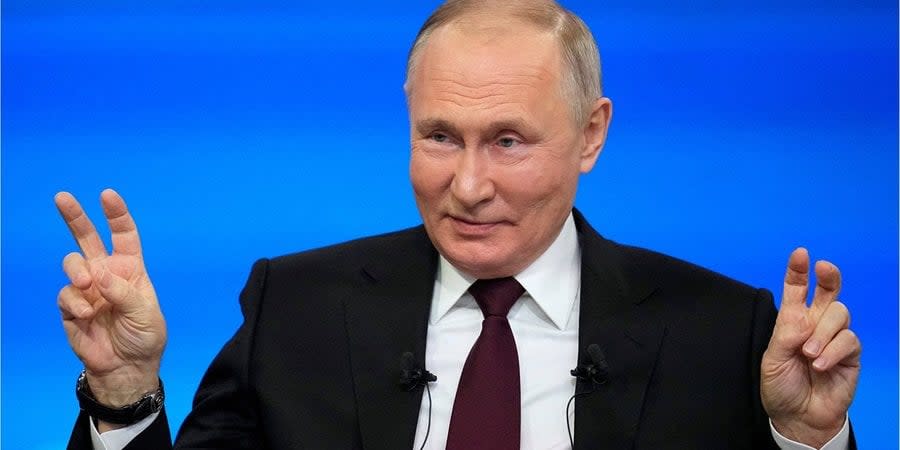Putin signals desire to halt hostilities to thwart Western aid, says ISW

- Oops!Something went wrong.Please try again later.
Reports indicating Russian dictator Vladimir Putin’s interest in ending the war are in fact a ploy to impede and disrupt further military aid to Ukraine from Western allies, the U.S.-based think tank Institute for the Study of War (ISW) wrote on Dec. 23.
Putin is only interested in ending the war if it results in a complete victory for Russia, stressed the ISW. Analysts pointed to past Kremlin attempts to mislead Western policymakers and pressure them into urging Ukraine to resume negotiations with Russia in the winter of 2022-2023.
Read also: Immediate ceasefire in Ukraine would play into Russia’s hands, Washington says
This suggests Russia’s aim to divert attention to hypothetical negotiations rather than allowing Ukraine to accumulate sufficient material resources and weaponry before the anticipated spring-summer counteroffensive. ISW suggests the Kremlin is likely employing covert channels to achieve a similar effect amid Western debates on further military aid to Ukraine.
The New York Times (NYT) reported on Dec. 23, citing former and current high-ranking Russian, American, and other officials, that Putin uses covert channels and intermediaries to express interest in a ceasefire, despite recent public statements to the contrary.
NYT reported that Western officials have received signals since September 2023 indicating Putin’s interest in a ceasefire and freezing the front. The publication cautioned that messages through covert channels might not reflect the “true desire” to engage in negotiations.
Read also: Ukraine rejects Chinese calls for immediate ceasefire
NYT journalists presented several theories for Putin’s hints at a desire to end the war, including upcoming presidential elections in Russia in March 2024, the desire to “keep options open” for resolving the conflict, taking advantage of the expected decrease in Western support for Ukraine, and “diversion” due to the war in Israel and Hamas.
However, ISW analysts are convinced that all these motives represent only temporary reasons why Putin may seek a ceasefire, providing time for Russia to prepare for renewed aggression against Ukraine.
In its report, NYT mentioned that Putin’s private hints at a desire to “declare victory and move on” contradict his public rhetoric. In recent speeches, he asserted Russia’s maximalist goals of “denazification” and “demilitarization” of Ukraine, claiming they remain unchanged.
Read also: Erdoğan calls on Putin to announce unilateral ceasefire in Ukraine
Analysts noted that neither NYT nor its sources provided any grounds to believe that Putin’s communications through covert channels reflect his intentions more than his public statements.
From the NYT material, it is also unclear whether Putin is interested in a ceasefire for a temporary pause or the definitive conclusion of the war. “Russia is ready (for negotiations), but exclusively to achieve its own goals,” Putin’s spokesperson, Dmitry Peskov, said in a comment to NYT.
We’re bringing the voice of Ukraine to the world. Support us with a one-time donation, or become a Patron!
Read the original article on The New Voice of Ukraine

